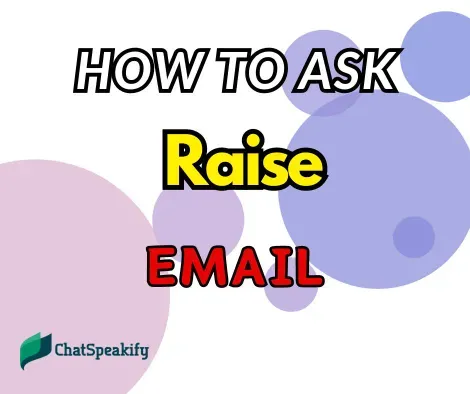We have all been there — you’ve worked your butt off, overachieved, and now it is the right time to ask for a raise. The mere thought of having that conversation with your boss terrifies you. One easy way to overcome this and make it less intimidating is to ask for a raise over email. It can be a challenging email to compose, though. So, we will break it down step-by-step to ensure you have all your ducks in a row (or eggs in your basket—whatever metaphor feels more appropriate).
Setting the Scene: A Personal Story
Well, last year, I did the same thing! I was breaking a lot of ground and felt that my compensation wasn’t reflecting what I contributed to the company after about a year of significant milestones. I finally gathered the courage to ask for a raise, but I was still terrified of having to make such a request face-to-face with my manager. “I wanted the note to be communicated, so I just did it over email,” she recalled. Here’s how I went about it.
Step 1: Research and Preparation
Gather Evidence and Metrics
Start by collecting evidence of your achievements and contributions to the company. This approach includes measurable results, such as increased sales figures, successful project completions, or any other demonstrations highlighting your performance.
Example Metrics:
Achieved a 20% increase in quarterly sales
Led a team to complete a significant project two weeks ahead of schedule
Implemented a new system that reduced response time by 15%
Benchmark Your Salary
Do your homework about the average salary for your position and industry to avoid asking for an unreasonable amount. Look up salary information on sites like Glassdoor or PayScale and conduct further research through specific industry salary surveys.
Step 2: Develop a Persuasive Email
Subject Line: Be transparent and clear
Subject: Request for Salary Review
Opening Paragraph:
Start by being polite and appreciative. Mention your time with the company and your overall satisfaction with your role.
Example: “Dear [Manager’s Name],
I hope this email finds you well. I have greatly enjoyed working at [Company Name] for the past [time period] and appreciate the support and opportunities the company has provided.”
Body:
State Your Request Clearly
Express your desire for a salary review in a straightforward manner.
Example: “Given my current contributions and the added responsibilities I have taken on, I would like to discuss the possibility of a salary review.”
Highlight Your Achievements
Summarize your key achievements and how they have benefited the company.
Example: “In the past year, I have achieved a [specific achievement], which resulted in [benefit to the company]. Additionally, I have taken on responsibilities such as [additional tasks], demonstrating my capability and commitment.”
Provide Benchmark Data
Mention your salary research to substantiate your request.
Example: “Based on my research on industry standards, the average salary for my position is [average salary], which aligns with my current role and responsibilities.”
Closing Paragraph:
Conclude with a positive note, expressing your willingness to discuss the matter further.
Example: “I am confident that a review of my salary will reflect my contributions to the team. I am open to discussing this further at your convenience. Thank you for considering my request.”
Sign-Off
End with a professional closing.
Example: “Best regards, [Your Full Name] [Your Position]”
Step 3: Proofread and Send
Before hitting send, review your email for any grammatical errors or typos. Ensure the tone remains professional yet confident.
Step 4: Follow Up
If you do not receive a response within a week, follow up politely.
Example Follow-Up:
“Dear [Manager’s Name],
I wanted to follow up on my previous email regarding a salary review. I would appreciate an opportunity to discuss this matter further at your earliest convenience. Thank you for your time.”
Conclusion
Emailing a request to the appropriate manager is an effective way to clearly and professionally make your case without feeling boxed into a corner. If you want a higher likelihood of your outcome going favorably, then prepare thoroughly, providing excellent support for why the party should say yes and in an assertive but friendly way.
Sending that email can be nerve-racking, but it’s critical to taking control and standing up for what you believe. You deserve it after all your hard work! Happy writing!
References
Glassdoor. (n.d.). Know Your Worth: Salary Calculator. Retrieved from Glassdoor
PayScale. (n.d.). PayScale Data for Salary Benchmarking. Retrieved from PayScale
Following these structured steps, you can craft a compelling email that signifies your value to the company and makes a persuasive case for a salary increase.
